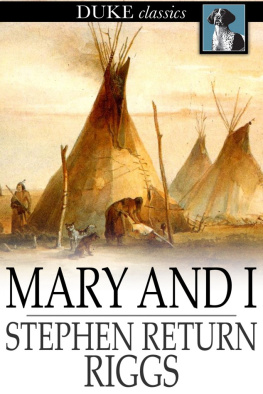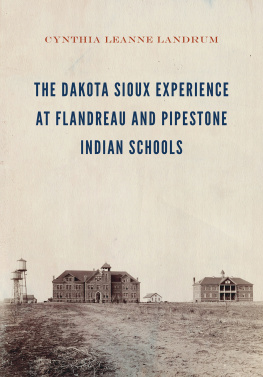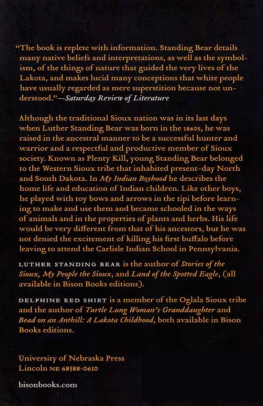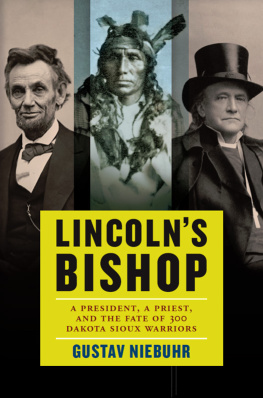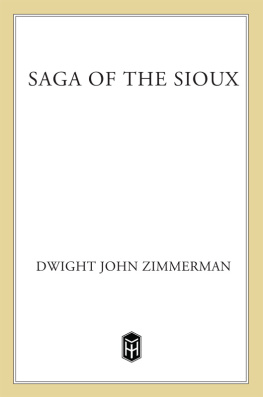MARY AND I
FORTY YEARS WITH THE SIOUX
* * *
STEPHEN RETURN RIGGS
*
Mary and I
Forty Years with the Sioux
First published in 1880
ISBN 978-1-62013-669-0
Duke Classics
2014 Duke Classics and its licensors. All rights reserved.
While every effort has been used to ensure the accuracy and reliability of the information contained in this edition, Duke Classics does not assume liability or responsibility for any errors or omissions in this book. Duke Classics does not accept responsibility for loss suffered as a result of reliance upon the accuracy or currency of information contained in this book.
Contents
*
*
To My Children,
ALFRED, ISABELLA, MARTHA, ANNA, THOMAS,
HENRY, ROBERT, CORNELIA,
AND EDNA;
TOGETHER WITH ALL THE GRANDCHILDREN GROWING
UP INTO THE MISSIONARY INHERITANCE
OF THEIR FATHERS AND
MOTHERS,
THIS BOOK IS INSCRIBED BY THE AUTHOR.
Preface
*
This book I have INSCRIBED to my own family. It will be of interest tothem, as, in part, a history of their father and mother, in the toilsand sacrifices and rewards of commencing and carrying forward the workof evangelizing the Dakota people.
Many others, who are interested in the uplifting of the Red Men, maybe glad to obtain glimpses, in these pages, of the inside ofMissionary Life in what was, not long since, the Far West; and totrace the threads of the in-weaving of a Christ-life into the lives ofmany of the Sioux nation.
"Why don't you tell more about yourselves?" is a question which, invarious forms, has been often asked me, during these last fourdecades. Partly as the answer to questions of that kind, this bookassumes somewhat the form of a personal narrative.
While I do not claim, even at this evening time of my life, to befreed from the desire that good Christian readers will think favorablyof this effort of mine, I can not expect that the appreciation withwhich my Dakota Grammar and Dictionary was received, by the literaryworld, more than a quarter of a century ago, will be surpassed by thishumbler effort.
Moreover, the chief work of my life has been the part I have beenpermitted, by the good Lord, to have in giving the entire Bible tothe Sioux Nation. This book is only "the band of the sheaf." If, byweaving the principal facts of our Missionary work, its trials andjoys, its discouragements and grand successes, into this personalnarrative of "MARY AND I," a better judgment of Indian capabilities issecured, and a more earnest and intelligent determination to work fortheir Christianization and final Citizenship, I shall be quitesatisfied.
Since the historical close of "Forty years with the Sioux," someimportant events have transpired, in connection with our missionarywork, which are grouped together in an Appendix, in the form ofMonographs. S. R. R.
BELOIT, Wis., January, 1880.
NOTE:This book, first published by the author, though with the imprint of W. G. Holmes, Chicago, has met with such favor as to indicate that it should be brought out under auspices that would give it to a larger circle of those interested in Indian missions. And to carry on the life of its author to its close, and give a more complete view of the progress of the work, another chapter has been added, making the "Forty Years" Fifty Years with the Sioux. A. L. R.
Introduction
*
The churches owe a great debt of gratitude to their missionaries,first, for the noble work they do, and, second, for the inspiringnarratives they write. There is no class of writings more quickeningto piety at home than the sober narratives of these labors abroad. Thefaith and zeal, the wisdom and patience, the enterprise and courage,the self-sacrifice and Christian peace which they record, as well asthe wonderful triumphs of grace and the simplicity of native pietywhich they make known, bring us nearer, perhaps, to the spirit and thescenes of Apostolic times than any other class of literature. How thechurches could, or can ever, dispense with the reactionary influencefrom the Foreign Mission field, it is difficult to understand.Doubtless, however, when the harvest is all gathered, the Lord of theHarvest will, in his wisdom, know how to supply the lack.
Some narratives are valuable chiefly for their interest of style andmanner, while the facts themselves are of minor account. Othernarratives secure attention by the weight of their facts alone. Theauthor of "Mary and I; Forty Years with the Sioux" has our thanks forgiving us a story attractive alike from the present significance ofits theme and from the frank and fresh simplicity of its method.
It is a timely contribution. Thank God, the attention of the wholenation is at length beginning to be turned in good earnest to thechronic wrongs inflicted on the Indian race, and is, though slowly andwith difficulty, comprehending the fact, long known to the friends ofmissions, that these tribes, when properly approached, are singularlyaccessible and responsive to all the influences of Christianity andits resultant civilization. Slowest of all to apprehend this truth,though with honorable exceptions, are our military men. The officerwho uttered that frightful maxim, "No good Indian but a deadIndian,"if indeed it ever fell from his lips,needs all the supportof a brilliant and gallant career in defence of his country to savehim from a judgment as merciless as his maxim. Such principles, let usbelieve, have had their day. They and their defenders are assuredly tobe swept away by the rising tide of a better sentiment slowly andsteadily pervading the country. The wrongs of the African have been,in part, redressed, and now comes the turn of the Indian. He must bepermitted to have a home in fee-simple, a recognized citizenship, andcomplete protection under a settled system of law. The gospel willthen do for him its thorough work, and show once more that God hasmade all nations of one blood. He is yet to have them. It is but aquestion of time. And the Indian tribes are doubtless not to fadeaway, but to be rescued from extinction by the gospel of Christworking in them and for them.
The reader who takes up this volume will not fail to read it through.He will easily believe that Anna Baird Riggs was "a model Christianwoman,"the mother who could bring up her boy in a log cabin whereonce the bear looked in at the door, or in the log school-house withits newspaper windows, "slab benches," and drunken teacher, and couldtrain him for his work of faith and perseverance in that dreary andforbidding missionary region, and in what men thought that forlornhope. And he will learnunless he knew it alreadythat a lad who inearly life hammered on the anvil can strike a strong and steady strokefor God and man.
The reader will also recognize in the "Mary" of this story, now goneto her rest, a worthy pupil of Mary Lyon and Miss Z. P. Grant. Withher excellent education, culture, and character, how cheerfully sheleft her home in Massachusetts to enter almost alone on a field oflabor which she knew perfectly to be most fraught with self-sacrifice,least attractive, not to say most repulsive, of them all. Howhopefully she journeyed on thirteen days, from the shores of LakeHarriet, to plunge still farther into the wilderness of Lac-qui-parle.How happily she found a "home" for five years in the upper story ofDr. Williamson's log house, in a room eighteen feet by ten, occupiedin due time by three children also. How quietly she glided into allthe details and solved all the difficulties of that primitive life,bore with the often revolting habits of the aborigines, taught theirboys English, and persevered and persisted till she had taught theirwomen "the gospel of soap." How bravely she bore up in that terriblemidnight flight from Hazelwood, and the long exhausting journey to St.Paul, through the pelting rains and wet swamp-grass, and withmurderous savages upon the trail. But it was the chief test and gloryof her character to have brought up a family of children, among allthe surroundings of Indian life, as though amid the homes ofcivilization and refinement. All honor to such a woman, wife, andmother. Her children rise up and call her blessed. Forty-one yearsafter her departure from the station at Lake Harriet, the presentwriter stood upon the pleasant shore where the tamarack mission houseshad long disappeared, and felt that this was consecrated ground.

